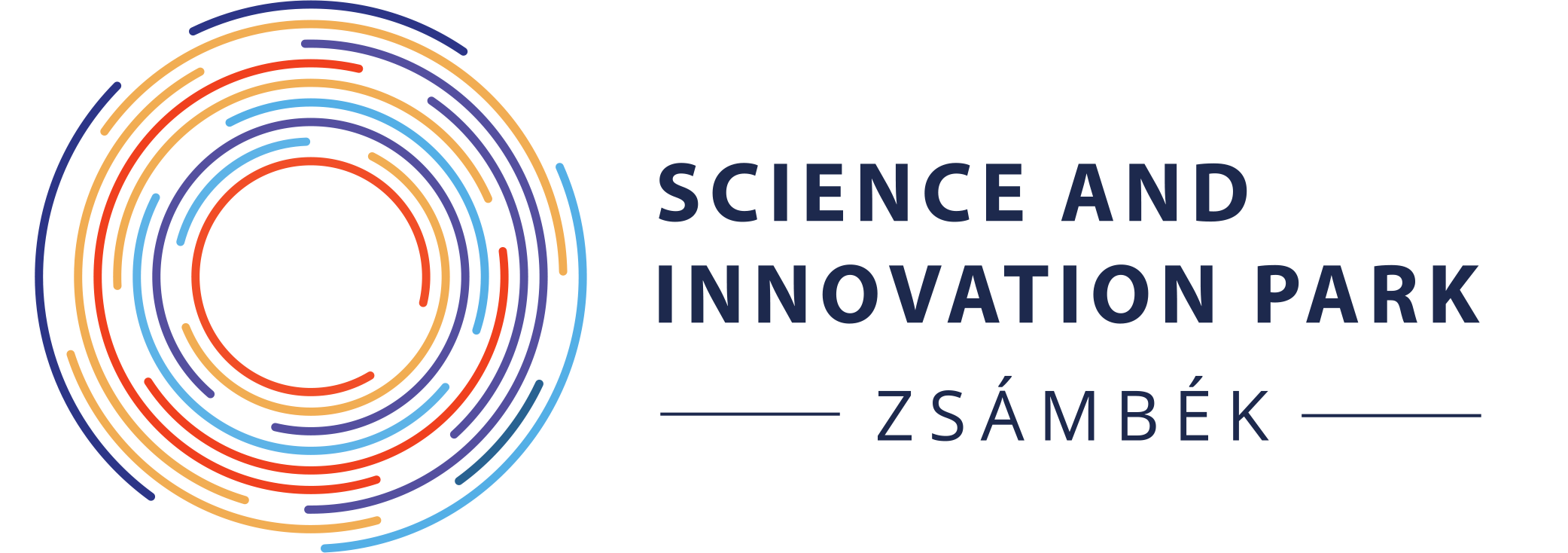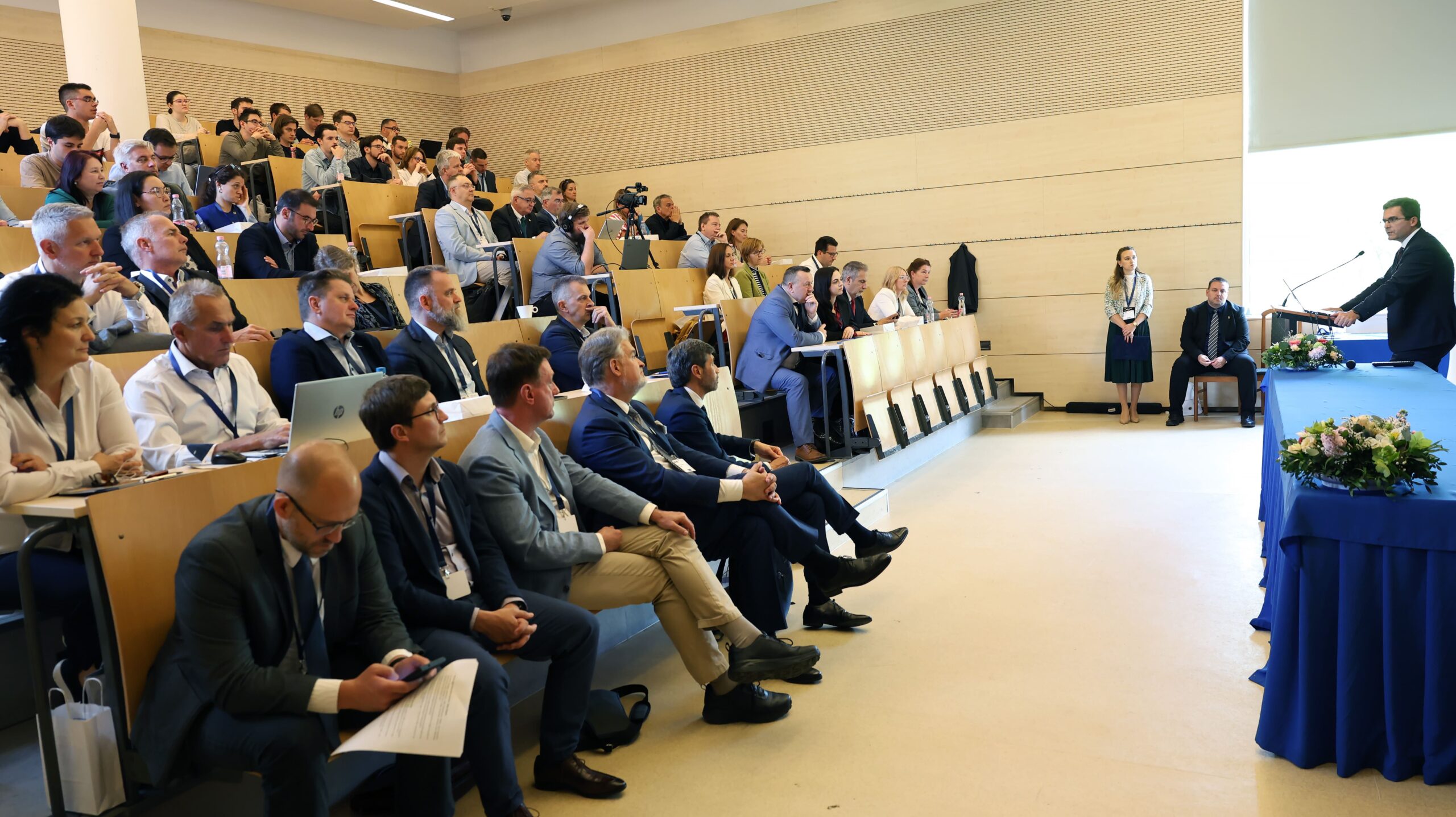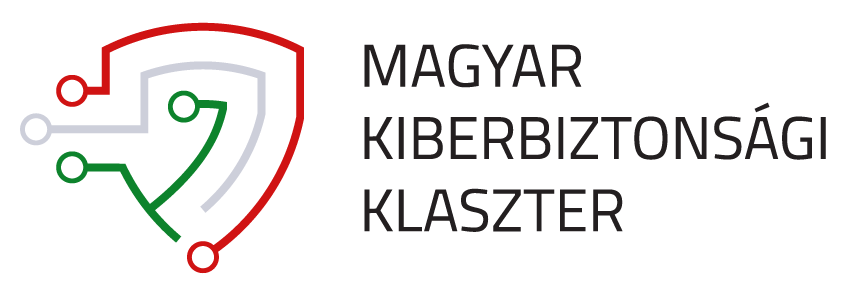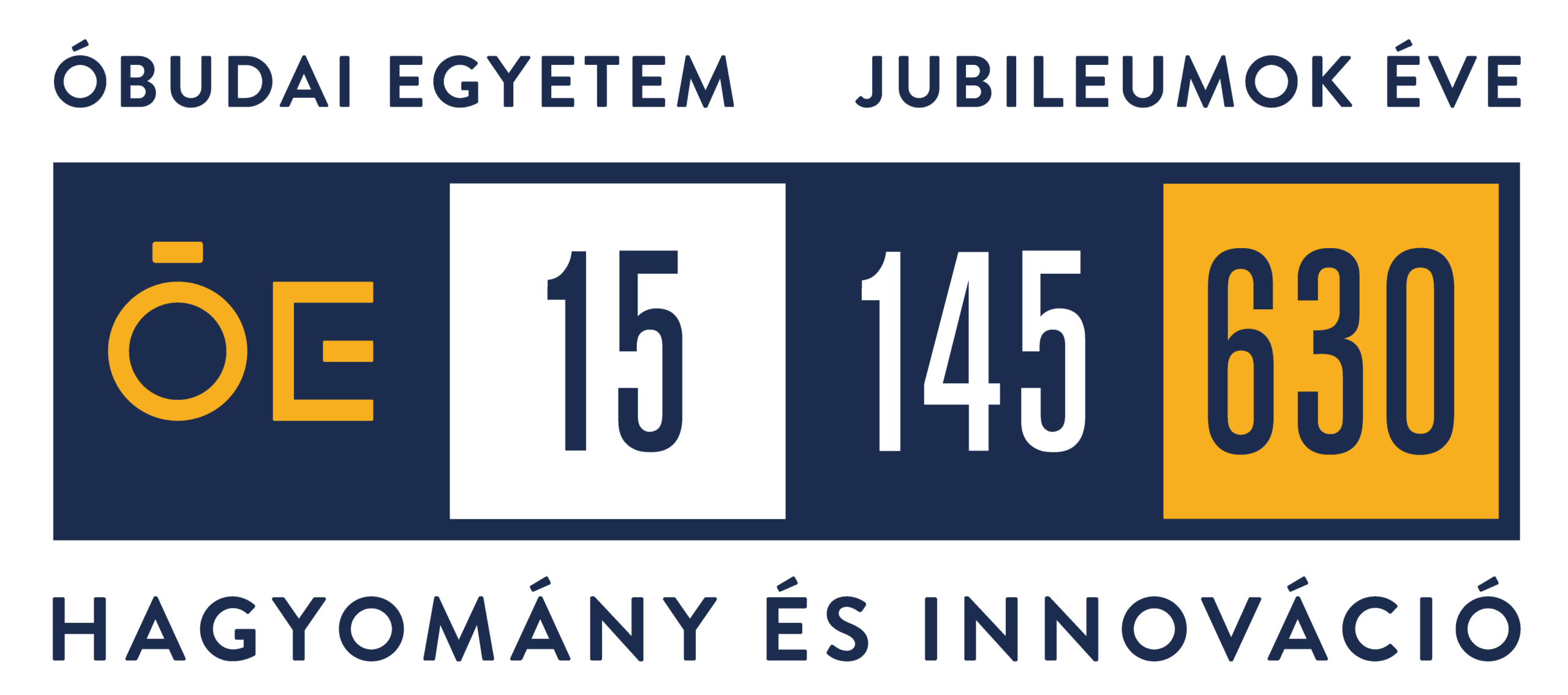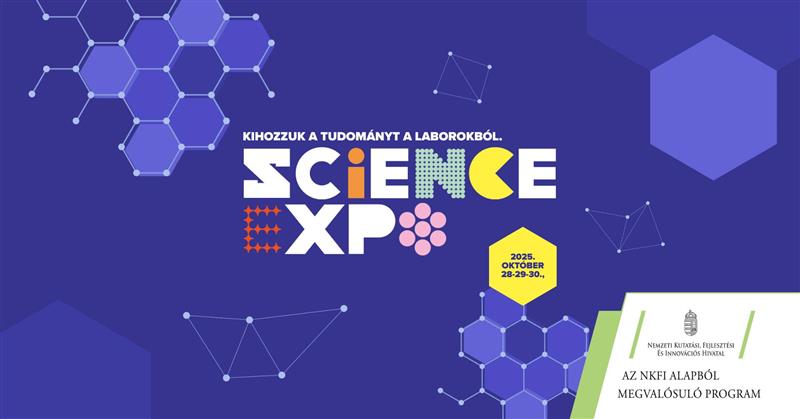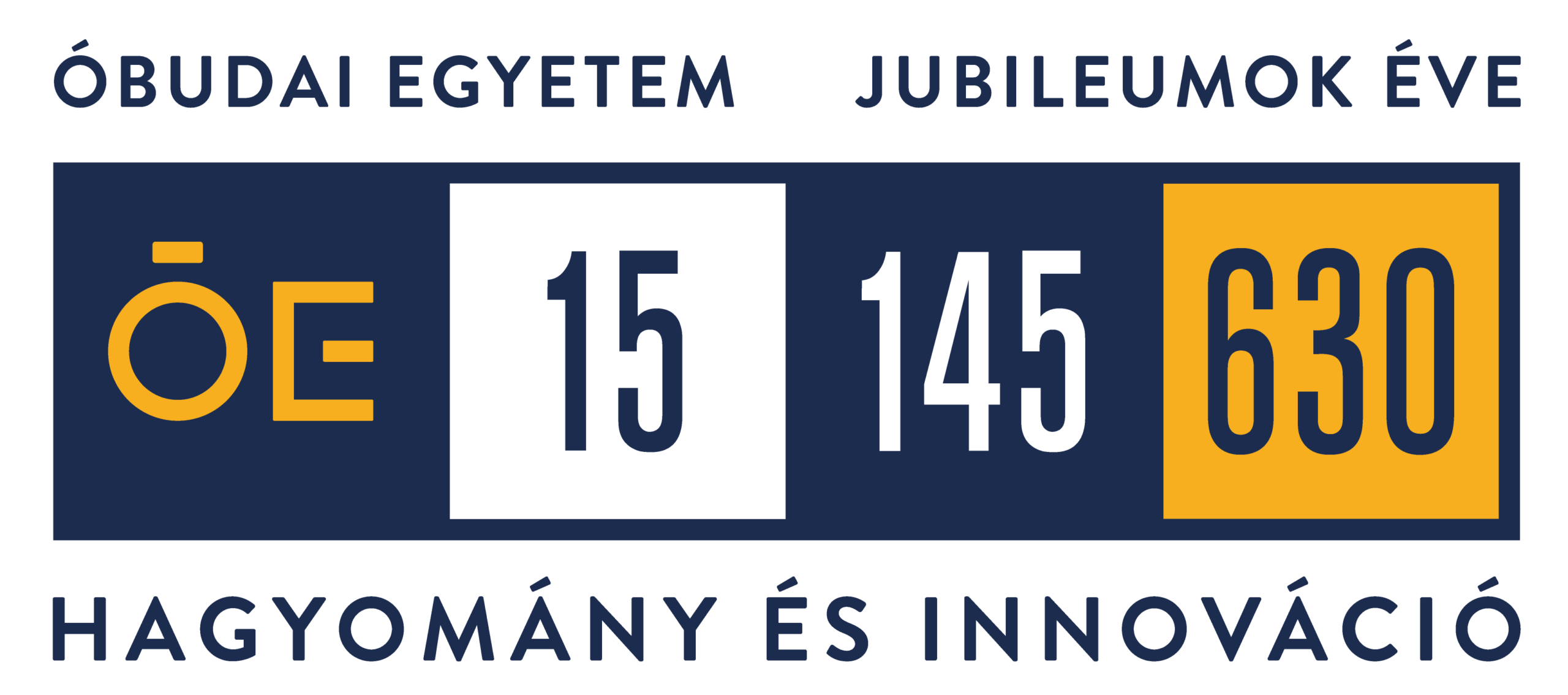On April 29, Óbuda University hosted a large-scale professional program entitled “Success Factors of Science and Innovation Parks”. The event was organized by Óbuda University and Zsámbék Science and Innovation Park Nonprofit Ltd., co-organized by the National Innovation Agency. The aim of the event was to provide a comprehensive overview of the key elements of the establishment, operation and development of science and innovation parks (SIPs), both from a domestic and international perspective.
The professional day offered a rich program to interested parties, who were able to gain insight into the most successful international practices, as well as learn about European innovation cooperation opportunities, the business models of domestic parks, the complex implementation process of science parks, and the points of connection to the innovation ecosystem.
Óbuda University is Hungary's leading practice-oriented technical university, focusing on engineering, IT and economics. It has seven faculties, seventeen bachelor's programs, thirteen master's programs and four doctoral schools. The institution pays special attention to industrial relations, including through industrial departments and technology parks, involving market players in education, responding to the challenges of Industry 4.0. Its international recognition is indicated by the fact that it is ranked 601-800 in the Times Higher Education (THE) 2025 world ranking, and is second among Hungarian institutions. The university has taken a pioneering role in launching the development of three science and technology parks in Székesfehérvár, Kaposvár and Zsámbék. These parks are of strategic importance for the knowledge-based economy of the future, their goal is to create competitive products and services, develop regions and become centers of innovation for science, society, education and economy. Through these initiatives, Óbuda University forms a bridge between academic knowledge and industrial needs, promoting the development of the domestic innovation ecosystem.
Featured topics and presentations
The professional day Salvatore Majorana, Vice President of the International Association of Science Parks and Innovation Sites (IASP), opened the event with a welcoming speech about the activities and mission of IASP. He illustrated the role of science and technology parks and innovation sites with data and statistics from global innovation communities and discussed their success factors based on IASP 2024 data. He mentioned the most important factors as connections with universities/higher education institutions, talented people working in tenant companies, programs/activities, image/prestige and location.
After that Prof. Robert Somogyi, the Deputy Chief Operating Officer of the National Innovation Agency, gave a presentation on Europe's competitiveness challenges, the role of the National Innovation Agency (NIÜ) in the Hungarian innovation ecosystem, and the mission and services of the NIÜ. The presentation addressed Europe's competitiveness challenges, such as low productivity growth, insufficient innovation and R&D investments, fragmentation of the single market, and the slow digital and green transition. He presented data on patent applications in Europe, China, the USA and other selected countries. He highlighted that a more competitive EU three pillars necessary: closing the innovation gap, decarbonizing the economy and reducing dependencies.
It was about about the 5 main pillars of the Hungarian model also: tax breaks, targeted state RDI funding, a successful and focused FDI policy, connecting universities and industry, and focusing resources on the 3+1 priority areas (digital transformation, healthy living, green transition, and security and safety).
Finally, the presentation detailed the mission and services of NIÜ, which aim to increase Hungary's innovation performance and capacities by strengthening the supply of innovative entrepreneurs and researchers, facilitating the access of innovative companies and startups to domestic and international markets, and promoting an innovation-driven environment. It emphasized the key role of science parks in the innovation ecosystem, highlighting their role in facilitating collaboration, economic growth, supporting startups, attracting talent, and stimulating innovation.
Prof. Dr. Levente Kovacs, the rector of Óbuda University, presented the university's emerging science and innovation park system. He presented the plans for the Kaposvár (smart industry), Zsámbék (future industry) and Székesfehérvár (mechatronics) parks, including the planned facilities (research centers, incubation centers, technology transfer centers) and the expected services (R&D&I infrastructure rental, incubation, education). He emphasized the university's strategic shift towards an entrepreneurial university model in the wake of higher education reforms. He touched on the university's innovation path, its own venture capital fund manager (OUVC), and international relations, citing the launch of the Hungarian-Uzbek Inno Technopark as an example.
International good practices were brought by representatives of two prominent European parks. Magnus Klofsten, presented the Linköping Science Park (LSP) in Sweden as a successful model and knowledge sharing center. In his presentation, he described the park’s founding in 1984, its size (over 600 companies, 14,000 employees), its close relationship with Linköping University, and its role in the outstanding growth of the region’s technology industry. He presented LSP’s best practices, such as the IndX industry-startup collaboration platform, support programs for growing companies (Swedish scale-ups), services to help startups and international companies integrate (soft landing), and the diverse collaboration with university students to nurture talent. He outlined the park’s complex innovation ecosystem and highlighted the potential of international science park networks (e.g. IASP) such as knowledge sharing, co-innovation, and market access.
Mgr. Zoltán Száraz, Ph.D. His presentation presented the ten-year history of the CAMBO Science Park in Trnava. He spoke about the establishment of the park, presented its research facilities, with a special focus on ion and plasma technologies, and touched on materials science research. He spoke about the initial difficulties and later successes in financing, including EU grants. He detailed industrial collaborations, such as with the semiconductor industry, and ongoing research projects covering materials science, energy storage (batteries) and aerospace applications. He described the park's innovation support structures, such as the incubator house, and outlined future plans, including expanding in-situ materials testing capabilities and launching new educational programs.
Panel discussions on practical experiences
During the afternoon, two interactive panel discussions deepened the topics covered in the morning:
First of all, the “Development of domestic science and innovation parks” moderated by László Csíki, the participants – Dr. habil. György Eigner (Dean, Óbuda University), Godri Bulcsu (Business Development Manager, SZTE TTC Zrt.) and Tibor Balazs (CEO, Semmelweis Technology Transfer Center Ltd.) – discussed the challenges and opportunities of creating domestic parks.
After this, the “Opportunities to join the international innovation cycle” in a panel discussion entitled Prof. Dr. Peter Galambos (Vice-Rector for Innovation, Óbuda University) moderated by the international speakers – Salvatore Majorana, Magnus Klofsten and Mgr. Zoltán Száraz Ph.D. – they shared their experiences and gave practical advice on building international cooperation.
The significance and conclusion of the event
The “Success Factors of Science and Innovation Parks” professional day provided an excellent platform for knowledge sharing and networking between domestic and international actors in the innovation ecosystem. Participants were able to learn first-hand about best practices, gain inspiration and concrete knowledge for the successful implementation of their own projects. The event contributed to promoting the development of domestic science and innovation parks, reinforcing the importance of international exchange of experience and cooperation in this dynamically developing field.
About the organizers
The Óbuda University One of Hungary's leading technical higher education institutions, committed to innovation and practice-oriented training. The Zsámbék Science and Innovation Park Nonprofit Ltd. is responsible for the development and operation of the Óbuda University science park in Zsámbék. The National Innovation Agency is a central player in the domestic innovation ecosystem, which aims to raise Hungary's innovation performance and capacities to a higher level and to facilitate the utilization of research, development and innovation results.
More information:
Óbuda University
Press and Marketing Office
Amon Adrienn
sajto@uni-obuda.hu
